

June 2018 Edition!
AIU News + Essay + Study tips + Education + Culture + Science + Technology + Art + Design + Body + Mind + Spirit + Environment + Human Rights + + Metallurgy Engineering + About AIU


AIU News + Essay + Study tips + Education + Culture + Science + Technology + Art + Design + Body + Mind + Spirit + Environment + Human Rights + + Metallurgy Engineering + About AIU
 May 9,
2018.
One of
our students,
Justin
Bisimwa
Mudekereza,
has published the book
titled “Understanding the
Multifaceted Management
Problems of Refugee Resettlement
in the United States of
America,” and it is available on
Amazon.
Here’s an overview: “Centering
on a social justice theme,
this book explains the realities
of the life that refugees live
upon their resettlement in the US. There are many problems
in the sector of refugee
resettlement in the country.
Readers of this book should
hope to understand the multifaceted
management problems
of resettlement in the US. This
is the only social war that the
US is unlikely to win.”
You can find Justin’s
book on the following
link: https://www.amazon.
com/Understanding-Multifaceted-
Management-
Problems-Resettlement/
dp/1480957240
Justin Bisimwa Mudekerezafor
is studying a Doctorate
program in Project Management
at AIU.
May 9,
2018.
One of
our students,
Justin
Bisimwa
Mudekereza,
has published the book
titled “Understanding the
Multifaceted Management
Problems of Refugee Resettlement
in the United States of
America,” and it is available on
Amazon.
Here’s an overview: “Centering
on a social justice theme,
this book explains the realities
of the life that refugees live
upon their resettlement in the US. There are many problems
in the sector of refugee
resettlement in the country.
Readers of this book should
hope to understand the multifaceted
management problems
of resettlement in the US. This
is the only social war that the
US is unlikely to win.”
You can find Justin’s
book on the following
link: https://www.amazon.
com/Understanding-Multifaceted-
Management-
Problems-Resettlement/
dp/1480957240
Justin Bisimwa Mudekerezafor
is studying a Doctorate
program in Project Management
at AIU.
 May 18, 2018.
One of our
graduates,
Atangana
Joseph Désiré,
has published
the article “The So’o rite in the
tradition of the Beti people of
Cameroon, Africa” on the Durreesamin
Journal.
The So’o rite in the tradition
of the Beti people of Cameroon
marks the transition from
adolescence to adulthood and
has the task of making the
adolescent (boy) capable of carrying
the weight, of bearing the
difficulties and of penetrating
the secrets of the new life.
Read the article in this link: https://drive.google.com/
file/d/1rrKB38YvQ_EEx-
OgaDsyEST__DyE1vFfL/
view?usp=sharing
Atangana Joseph Désiré has
completed a Doctorate program
in Educational Sciences
in Atlantic International
University.
May 18, 2018.
One of our
graduates,
Atangana
Joseph Désiré,
has published
the article “The So’o rite in the
tradition of the Beti people of
Cameroon, Africa” on the Durreesamin
Journal.
The So’o rite in the tradition
of the Beti people of Cameroon
marks the transition from
adolescence to adulthood and
has the task of making the
adolescent (boy) capable of carrying
the weight, of bearing the
difficulties and of penetrating
the secrets of the new life.
Read the article in this link: https://drive.google.com/
file/d/1rrKB38YvQ_EEx-
OgaDsyEST__DyE1vFfL/
view?usp=sharing
Atangana Joseph Désiré has
completed a Doctorate program
in Educational Sciences
in Atlantic International
University.
 April 3,
2018. One
of our
graduates,
Saad
Masood
Butt, was
awarded
with a
Medal and a Certificate of Academic
Excellence for his PhD
at the 33rd Jalsa Salana (Annual
Convention) that was held at
Australia’s largest mosque,
Bait-ul-Huda (House of
Guidance), in Western Sydney.
Saad Masood Butt completed
his Doctor of Philosophy,
PhD program with a major in
Computer Science at AIU
April 3,
2018. One
of our
graduates,
Saad
Masood
Butt, was
awarded
with a
Medal and a Certificate of Academic
Excellence for his PhD
at the 33rd Jalsa Salana (Annual
Convention) that was held at
Australia’s largest mosque,
Bait-ul-Huda (House of
Guidance), in Western Sydney.
Saad Masood Butt completed
his Doctor of Philosophy,
PhD program with a major in
Computer Science at AIU
 May, 2018. These graduate
students completed
the majority of the
requirements to obtain
honors, which included a
4.0 GPA, published works,
recommendation from
their respective advisors,
patent a product, etc.
Congratulations
to both of them!
May, 2018. These graduate
students completed
the majority of the
requirements to obtain
honors, which included a
4.0 GPA, published works,
recommendation from
their respective advisors,
patent a product, etc.
Congratulations
to both of them!
 Call for Papers
This Conference will be held
5–7 June 2019 at the University
of Patras in Patras, Greece.
We invite proposals for paper
presentations, workshops/
interactive sessions, posters/
exhibits, colloquia, focused
discussions, innovation
showcases, virtual posters, or
virtual lightning talks.
Theme 1: Identity and
Belonging
Theme 2: Education and
Learning in a World
of Differences
Theme 3: Organizational
Diversity
Theme 4: Community Diversity
and Governance 2019 Special Focus: Border
Crossing Narratives: Learning
from the Refugee Experience
Become a Presenter:
1. Submit a proposal
2. Review timeline
3. Register
Submit your proposal
by 5 June 2018
Advance Registration
Deadline
5 September 2018
Regular Registration
Deadline
5 May 2019
Visit the website:
http://ondiversity.com
Call for Papers
This Conference will be held
5–7 June 2019 at the University
of Patras in Patras, Greece.
We invite proposals for paper
presentations, workshops/
interactive sessions, posters/
exhibits, colloquia, focused
discussions, innovation
showcases, virtual posters, or
virtual lightning talks.
Theme 1: Identity and
Belonging
Theme 2: Education and
Learning in a World
of Differences
Theme 3: Organizational
Diversity
Theme 4: Community Diversity
and Governance 2019 Special Focus: Border
Crossing Narratives: Learning
from the Refugee Experience
Become a Presenter:
1. Submit a proposal
2. Review timeline
3. Register
Submit your proposal
by 5 June 2018
Advance Registration
Deadline
5 September 2018
Regular Registration
Deadline
5 May 2019
Visit the website:
http://ondiversity.com
 April 19, 2018.
One of our
graduates, Cirilo
Quintana Alvarado,
has shared two books
with us. Cirilo explains that
his book “Del amor y del desierto”
(Of Love and the Desert)
is a book to reflect on life and
to look for in each poem a
motive of improvement and
encouragement to achieve our
dreams. His book “Nostalgias,
poemas de amor y desamor”
(Nostalgias –Poems of Love
and Heartbreak) is a book of
poems addressed to all beings
who love, struggle to find happiness,
for those who know
that love for another is necessary
first to feel it in the heart.
Cirilo Quintana Alvarado
has completed a Doctorate
program in Education at AIU.
Read the books through the
following links:
“Del amor y del desierto” (Of
Love and the Desert) http://
students.aiu.edu/submissions/
profiles/resources/onlineBook/
e7w9Q7_del%20amor%20y%20
del%20desierto.PDF
“Nostalgias, poemas de amor
y desamor” (Nostalgias –Poems
of Love and Heartbreak)
http://students.aiu.edu/submissions/
profiles/resources/
onlineBook/S5s8Q3_OSTALGIAS.
pdf
April 19, 2018.
One of our
graduates, Cirilo
Quintana Alvarado,
has shared two books
with us. Cirilo explains that
his book “Del amor y del desierto”
(Of Love and the Desert)
is a book to reflect on life and
to look for in each poem a
motive of improvement and
encouragement to achieve our
dreams. His book “Nostalgias,
poemas de amor y desamor”
(Nostalgias –Poems of Love
and Heartbreak) is a book of
poems addressed to all beings
who love, struggle to find happiness,
for those who know
that love for another is necessary
first to feel it in the heart.
Cirilo Quintana Alvarado
has completed a Doctorate
program in Education at AIU.
Read the books through the
following links:
“Del amor y del desierto” (Of
Love and the Desert) http://
students.aiu.edu/submissions/
profiles/resources/onlineBook/
e7w9Q7_del%20amor%20y%20
del%20desierto.PDF
“Nostalgias, poemas de amor
y desamor” (Nostalgias –Poems
of Love and Heartbreak)
http://students.aiu.edu/submissions/
profiles/resources/
onlineBook/S5s8Q3_OSTALGIAS.
pdf
 This Conference will be held
17–19 January 2019 at UBC
Robson Square, in Vancouver,
Canada.
We invite proposals for paper
presentations, workshops/
interactive sessions, posters/
exhibits, colloquia, focused
discussions, innovation
showcases, virtual posters, or
virtual lightning talks.
Theme 1: Environmental
Sustainability
Theme 2: Sustainability in
Economic, Social,
and Cultural Context
Theme 3: Sustainability Policy
and Practice Theme 4: Sustainability
Education
2019 Special Focus: From
Pedagogies for Sustainability to
Transformative Social Change
Become a Presenter:
1. Submit a proposal
2. Review timeline
3. Register
Submit your proposal
by 11 June 2018
Early Registration
Deadline
17 July 2018
Visit the website:
http://onsustainability.com
This Conference will be held
17–19 January 2019 at UBC
Robson Square, in Vancouver,
Canada.
We invite proposals for paper
presentations, workshops/
interactive sessions, posters/
exhibits, colloquia, focused
discussions, innovation
showcases, virtual posters, or
virtual lightning talks.
Theme 1: Environmental
Sustainability
Theme 2: Sustainability in
Economic, Social,
and Cultural Context
Theme 3: Sustainability Policy
and Practice Theme 4: Sustainability
Education
2019 Special Focus: From
Pedagogies for Sustainability to
Transformative Social Change
Become a Presenter:
1. Submit a proposal
2. Review timeline
3. Register
Submit your proposal
by 11 June 2018
Early Registration
Deadline
17 July 2018
Visit the website:
http://onsustainability.com

| Flávio Rafael Garcia Van-dúnem Bachelor of Science Computer Science Angola |
Leonardo Maliesse Ntemo Mack Doctor of Philosophy Educational Technology Angola |
David Teka Pongo Bachelor of Science Information Systems Angola |
Dalia Cardoso Nawandi Bachelor of Business Administration Busi ness Adminis tration Angola |
Denair Alexis Munroe Bachelor of Science Accounting Bahamas |
Hsun Chen Doctor of Philosophy Busi ness Adminis tration Belize |
| José Jacinto Ramirez Terrazas Bachelor of Science Information Systems Bolivia |
Leang Rithea Post-Doctorate of Public Health Public Health Cambodia |
Chea Huch Doctor of Public Health Public Health Cambodia |
Earl Steadman Morgan Sr. Doctor of Philosophy Higher Education Leadership Canada |
Vic Birdi Bachelor of Science Chemical Engineering Canada |
Marie Isabelle Mendy Bachelor of Social and Human Studies Mass Communications Cape Verde |
| Cynthia Andrea Casco Bachelor of Science Psychology Chile |
Luis Antonio Mora Solan Doctor of Education Education Colombia |
Pedro Pablo Gutierrez Lopez Bachelor of Theology Theology Colombia |
Amador Benitez Lerma Bachelor of Science Mathematics Colombia |
Omar Dario Torres Torres Bachelor of Science Industrial Engineering Colombia |
Segundo Armando Caipe Cuatumal Bachelor of Science Electrical Engineering Colombia |
| Juan Pablo Alvarez Atuesta Bachelor of Science Mechanical Engineering Colombia |
Jairo Ordilio Torres Moreno Doctor of Business Administration Finances and Projects Colombia |
Sixto Felipe Guzmán Figueroa Doctor of Business Administration Busi ness Adminis tration Colombia |
Mitra Heidarpanah Doctor of Philosophy Busi ness Management Denmark |
Yolanda Bienvenida Liriano Hernandez Bachelor of Science Psychology Dominican Republic |
Joël Fortuné Bachelor of Science Sociology Dominican Republic |
| Cándida Díaz Doctor of Linguistics Linguis tics Dominican Republic |
Brindicys Rosario De Gonzalez Doctor of Science Information Technology and Management Dominican Republic |
Juan Heriberto Lopez Estevez Doctor of Education App . Linguis tics for Sec. Language Teachi ng Dominican Republic |
Wanda Marina Román Santana Doctor of Science Psychopedagogy Dominican Republic |
Patrick Girukwayo Semahane Master of Business Administration Strategic Planning and Leadership DR Congo |
Alexander Baez Hernández Doctor of Philosophy Forensi c Accounting Ecuador |
| Guerrero Leon Willington Ivanel Bachelor of Science Environmental Science Ecuador |
Carlos Roberto Castillo Monge Bachelor of Science Industrial Engineering El Salvador |
Mohammad Rafee Sadiqi Doctor of Philosophy Information Security Germany |
Isaac Baya Naaso Doctor of Science Civil Engineering Ghana |
Sary Ghassani Bachelor of Business Administration Marketing Ghana |
Isaac Kwasi Annor Larbi Master of Science Project Management Ghana |
| Yasser Jamyle Master of Business Administration Accounting Ghana |
Francis Edem Noviewoo Bachelor of Science Information Technology Ghana |
Alfred Gamaliel Orellana Morales Bachelor of Science Electromechanical Engineering Guatemala |
Claudia Guisela Mendoza Cruz Bachelor of Business Administration Busi ness Adminis tration Guatemala |
Lydie Madjou Master of Business Administration Busi ness Adminis tration Haiti |
Waldina Teresa Meza Master of Science Psychology Honduras |
| Davodian Benyamin Bachelor of Science Mechanical Engineering in Automotive Spec. Israel |
Wesley Lindel Stennett Bachelor of Science Electrical Engineering Jamaica |
Mary Mukera Thiangau Bachelor of Business Administration Finance Kenya |
Foriest Samuel Vacanarat Toe Master of Science Project Management Liberia |
Jorge Nicolas Ulloa Gonzalez Doctor of Science Public Health Mexico |
Atangana Joseph Désiré Doctor of Education Educational Sciences Mexico |
| Jose Ramon Soto Zazueta Bachelor of Science Civil Engineering Mexico |
Egbegi A. Neville Certificate of Science Construction Management Nigeria |
Samuel Oghene Etatuvie Doctor of Philosophy Public Adminis tration Nigeria |
Mustapha Musa Ibrahim Doctor of Philosophy Islamic Studies Nigeria |
Akusu Oyovwikimo Meshach Doctor of Business Administration Marketing Nigeria |
Jorge Luis Rodríguez Mendieta Doctor of Science Information Systems Panama |
| Giancarlo Hernán Alva Gonzáles Bachelor of Science Environmental Mgmt. and Ris k Prevention Peru |
Pedro Rodolfo Arguedas Márquez Bachelor of Science Psychology Peru |
Vilmarie A. González Román Doctor of Psychology Family Therapy Puerto Rico |
Marisol Hernandez Hernandez Doctor of Public Health Public Health Adminis tration Puerto Rico |
Giovanie Yorke Bachelor of Science Archi tecture Saint Lucia |
Yousif Abdullatif AlSaeed Bachelor of Science Chemical Engineering Saudi Arabia |
| Sami Bsoul Master of Science Psychology Slovakia |
Ghislain Ngoua Bachelor of Literature English -French-Spanish Literature South Africa |
Vongai Zhou Tangawamira Master of Business Administration Busi ness Adminis tration South Africa |
Lonkhululeko Phumzile Khumalo Doctor of Science Public Health Swaziland |
Peter. T. Nditi Bachelor of Business and Economics Accounting Tanzania |
Saidi O Nsigarila Master of Arts Education Tanzania |
| Ayse Gokkaya Master of Science Clinical Psychology Turkey |
Atuhairwe Brenda Bachelor of Business Administration Procurement and Supp ly Chain Management Uganda |
Addis-Alem Belay Post-Doctorate of Business Administration Human Resources Management United Kingdom |
Osei Tawiah Frimpong Doctor of Science Clinical Psychology USA |
Olugboji Moyosoore Akindimeji Doctor of Philosophy Computer Systems Engineering USA |
Martha Abdullah Bachelor of Science Sociology USA |
| Prudence Phiri Bachelor of Business Administration Busi ness Adminis tration Zambia |
Nswanamumi Gebby Doctor of Philosophy Geograph y Zambia |
Gracious Mwila Mwelwa Master of Science Environmental Engineering Zambia |
Martin Chimfwembe Bachelor of Supp ly Chain Management Supp ly Chain Management Zambia |
Francis Chishala Bachelor of Science Library Science Zambia |
|
 Patrick Girukwayo Semahane
Patrick Girukwayo Semahane  Sary Ghassani
Sary Ghassani Hsun Chen
Hsun Chen
Outlines
1. Introduction
2. Type of children living
on street
3. Why children run away
from home
4. Nuisance
5. Negligence on the parts
of parents, society and
government
6. Ways of combating this
—contribution from the
children, parents, society
and government
Introduction
One of the menaces of our
times that are hitting our
society negatively in Lagos is
the street children and drug
addicts menace. The street
children comprises of street
urchins, prostitutes, drug
addicts, school drop-out, and
social miscreants. They are
people neglected by the society;
many of them are jobless
without any particular accommodation
facility and are
heavy alcoholic drunkards.
They constitute a nuisance
to the people around where
they stay. Stealing and rapping
young girls that cross their
way. Something must be done
to put a stop to it or else the
society would be engulfed by
these social miscreants, just as
my pastor –pastor Taiwo Odukoya
said ‘if you don’t reach
them, they will reach you’.
There are professional street
children and ordinary street
children, then hardened street
children. The professional
constitute mainly beggars,
while the ordinary are those
that decide to run out of
the house, and others sent
or sponsor by some wicked
elites in the society who use
them as tugs, which develop
to hired assassins. Some are
sent to make money for their
sponsors while they feed them
daily. Others are indoctrinate
to fight a religious war in time
is needed. Another type of
groups are the school dropouts,
the stubborn and heady
children who cannot stay with
their parents and the orphans
who are neglected by either
poor uncles or wicked uncles.
Other groups are the lazy ones
who want to get things on a
platter of gold without working
for it, who are pilfers and
they cannot lift up a broom.
And finally, are those who are
confused in life, they have no
mind of their own but depend on their peer group to take
decisions; they are easily lure
to sin by their peer group.
They have good parent willing
to send them to school but
cannot stay.
Why they run away
from home
These children are mostly
boys although we have girls
who are street children; they
cannot be comparing by the
numerous boys on the street. They have several
reasons for being
on the street.
Majority ran
away from home
because their
mother died and
their father remarried,
the step
mother started
maltreating them
badly. She was
not giving them
food. Some of
them stole money
and ran away
from home. Some
of them could
not submit to
their step mother.
Some of them
were apprentice
but could not finish
and ran away,
either they stole
money from their
master and ran
away. Some of them could not
concentrate at the work they
are learning due to peer group.
Majority of them ran away as a
result of poverty in the home,
when parents or father could
not feed his family, they have
no choice than to get out of the
home to look for daily food.
Some of them were deceived
by friends who told them to
live their home and come to
Lagos that they can get a job
where they would make quick
money, so they left home even
left school for those in school
and found themselves in Lagos
for green pasture.
The work they do
on the street
The ones that a bit reasonable
hawk on the street, they
sell things like sachet water,
sweet etc, they carry loads
for the people but majority
do bus conductor in the day
and in the night they snatch
people’s bags. The rest that
are not doing anything pick
things from people’s pockets,
remove woman’s necklace
from their neck as they accustom
them, the one that
resist them they beat or even
rape. Others snatch people’s
phone on traffic jam.
Who is to be blamed? There
are many factors that contribute
to this, first Parents,
Society, government and the
children themselves.
Parents
More especially the polygamous
family lacks affection for
their children, according to Erikson’s
theory on psychosocial
stages of development, which
state that when a child is
deny love care and affection,
he will grow up not trusting
anyone, he ends up constitute
nuisance because he cares for
no one. Is what you have you
give. Fathers who lost their
wives should consider the
children when getting a second
wife, children fear second
wife, they fear she may not
like them and when she start
having her children, she may
favour her children more than
them so they decide to live the
house and stand on their own.
Poverty on the side of the
parent: When parents cannot
care for their children, they
left them to fern for themselves.
Then they mixed up
with all kinds of people in
the society and get contaminated,
they end up being street
children.
Society
Society does not interact
with these street children.
They fear them as if they are
outcast, people avoid having
anything to do with them. The
society sees them as never do
well that nothing good can
come out of them
Government
The government pretends
that they don’t know that they
are existing yet the politicians
use them to get rid of anyone
that stands on their way. They
are active during any election Ways of combating street
children and drug addicts
in our area
The parents should bring
forth children that they can
train very well to the highest
level, it is a crime for one to
bear a child and being unable
to take care of that child.
According to Erikson’s
theory on psychosocial stages
of development, if a child is
denied love, care and affection,
he/she end up not trusting
anyone. Children should be
encouraged to live a good life.
Fathers should be able to
maintain love and peaceful
environment in their homes,
women should learn that every
child brought forth in this
world is a child to take care of;
they should take them as their
own and treat them with love
knowing they are building a
future generation.
Society should get closer
and show them love. Thank
God for my church that
decided to rehabilitate them.
They should be encouraged
and not isolated. Everyone
needs love.
Government should build
a home for the rehabilitation
of these street children, our
church started one and there
have been a great improvement.
Government should
be involved in training and
setting them up into small
scale business, craft work or
vocational.
Street children themselves
should be somehow compel
to live a positive life, nonsense
should not be tolerated
from them, they should learn
how to love, tolerate people
and respect the elders. They
should realize that the world
is not always bed of roses;
they should know that if you
want to be on top, you have
to work for it, lead by example.
A leader must stand out
for the good and truth. Not all
that glisters are gold, if you go
for all that glisters, you may
not hit the gold, but if you go
for gold then patience has to
be applied. For gold passes
through refiner’s fire. Going
through fire is not easy. Let
us all join hands to make our
Nation better.

We can define the evaluation as the systematic and comprehensive procedure in which multiple strategies are used, such as: questionnaires, inventories, interviews, standardized or criterion tests, oral exams, short tests, portfolios, presentations, etc. The evaluation is, then, a set of strategies aimed at improving the quality of teaching. Evaluation is an integral part of the life of the human being, we are continually undergoing evaluation. Not a day goes by that at the end of the day we do not take stock of what we did and how we did it, what we still have to do, etc. And so it is with all aspects of life. Therefore, it is not possible to think and organize a teaching process without the evaluation component being present. When excellence in educational performance is sought, it is essential to continually evaluate our own teaching procedures, so that it allows us to adapt them to the needs and characteristics of the students in a way that satisfies the expectations of the students. In the same way, students must be systematically subjected to evaluations in order to check their evolution, as well as the effectiveness of our own professional performance. It is important that teachers adapt to the students for which they must know, and discern how to proceed with each one if you had to reduce all educational psychology to a single principle, it would remain: the most important factor that influences learning it is what the student already knows. Hence the current boom in the initial assessment and the diagnostic dimension of the evaluation. The schools are made up of professionals. Such professionals must constantly seek to serve their students and the community in the best possible way. They must have high demanding criteria. They should compare their practices with the criteria. They should try to improve those aspects of their work that are deficient, or when the state of science has confirmed that there are better strategies to educate their students. They must work in collaboration with colleagues, parents and the community in order to effectively meet the range of educational needs of all their students. Must be open and interested in others evaluating their work. Instead, the effective school is one whose professionals systematically perform and use assessments to serve students well and to inform the public of the school’s achievements and needs. The word is a term that has been used a lot in recent decades and that is currently loaded with new meanings. This appreciation ought to allow us to make our mind more flexible in order to be able to grasp what is now understood as evaluation. Formerly it was understood by evaluation, or it was spoken of in terms of correction, of exam, of “change of level”, of the degree of adjustment to some norms or criteria. In more recent times, evaluation has been exercised as a control; it has been applied more to the product and to the results than to the processes; it has been more understood as a measure and quantification; it has polarized in excess in the student and its performance more than in any other factor of the teaching-learning process and has been used to compare and classify. In many moments, the educational evaluation is understood as a source of improvement. We can affirm with completeness that without evaluation there is no better possible and that only evaluating continuously is how we will progressively improve. The evaluation allows us to know what happens in school, assess it and act more effectively.

In phase 3 of your program at Atlantic International University, you write a thesis of a research project. One thing that differentiates the thesis from an essay is that you will write an Abstract at the beginning of your thesis. It is very important to the success of your thesis to have a good abstract. When you someone starts to read your thesis, they will read the abstract first. Even though it will most likely be the last part of your thesis that you write. The abstract is not the first impression that a reader has of your thesis; the title of the thesis is the first impression. If the title grabs the reader’s attention then they will read the abstract next. There are objectives that an abstract hopes to accomplish. The abstract is more than just a summary of your thesis. You also want to get the reader’s interest and trust. The abstract should briefly summarize the scope and methods of the research and clearly state the conclusion of the research. The abstract is like taking a quick photograph of the thesis. The reader develops an image of the research quickly. You want this image to develop trust in the thesis. The abstract will basically present 4 parts in this order. 1. Background of topic 2. Methods used in research 3. Results of analysis 4. Conclusion based on analysis An ideal abstract will present these parts using between 150 and 300 words. Your reader is more likely to lose interest if the abstract is too long. Also, if your abstract is too long, the reader will tend to think that you do not understand your research yet. The briefer and clearer you are, the more confidence the reader will have that you truly understand your own research. Moreover, do not include any citations or references in the abstract. Those are put in the text of the thesis. Also, make sure that your abstract does not copy sentences from your thesis, especially the introduction. The abstract must be different from the text of your thesis. To write the abstract, have another person ask you to briefly explain your thesis. Try to be as brief and complete as possible. Record your answer. Play the recording to other people. Ask for their feedback. Do they get a clear image of your research and its conclusion? Do they think anything is missing? Did your recording grab their attention? Use the feedback of other people to edit your abstract. It is important that you do not write the abstract all by yourself without feedback from others. The abstract is a part of the thesis that must be evaluated by others before the thesis is complete. You must have confidence that others like and approve of your abstract. The success of your thesis will be greater.

When we are doing a
research work and
we have all the bibliography
that we will use, we can find
the surprise of the existence
of different ways in terms of
quoting the texts we want or
to make the reference of the
sources at the end of our work.
We had enough to find the
bibliography but now we have
a big problem: why they quote
here in a way and why it is
done in another way. Which is
the correct way? In the case of
being a teacher of distance institutions
or Advisor, as in the
case of Atlantic International
University, I have deliveries
with little known ways of
quoting in the Western world.
The rules to quotations are
made by organizations for a
better distribution and location
of the works; Scientists
accept these rules.
The different ways of making
citations and references
are the following:
1. ISO 690:2013 idem ISO
690:2010. https://www.iso.org/
home.html
2. CMS. Chicago style. 1903.
It is applied in social sciences,
art, music and literature.
3. TURABIAN. Kate Turabian,
1937. It is applied in
humanities for students and
doctoral students.
4. MLA. Modern Language
Association. It is applied for
humanities. https://www.mla.
org/MLA-Style
5. VANCOUVER STYLE.
International Committee
of Medical Journal Editors;
1978. It is applied for medical
journals.
6. APA. American Psychological
Association; 1952.
http://www.apa.org/
7. HARVARD. Harvard
University, 1881. http://www.
unamenlinea.unam.mx/
recurso/83752-estilo-harvardpara-
las-referencias-bibliograficas
8. AMA. American Medical
Association. https://sites.
google.com/site/investigandocchn/
home/formatosde-
citacion-y-referencias/
estilo-ama-american-medical- association
9. ACS. American Chemical
Society. https://libguides.tru.
ca/acs
10. MHRA. Modern
Humanities Research
Association.
Style for social sciences,
contemporary history and
geography. http://www.mhra.
org.uk/
11. IEEE. Institute of Electrical
and Electronics Engineers.
Model for Engineering and
Computer Science. http://
www2.unavarra.es/gesadj/
servicioBiblioteca/tutoriales/
Citar_referenciar_(IEEE).pdf
12. CSF. Council of Science
Editors. It is applied in
Biomedicine and Biochemistry.
https://www.councilscienceeditors.
org/
If you are a student in English
language, in this document
you have the official pages or
Home Page of the institutions
mentioned.
In the WEB pages you can
find documents in English
because the institutions that
elaborate the system about
quotations, the majority, are
from the United States.
BIBLIOGRAPHY. International Organization for Standardization.
Recuperado de: https://www.iso.org/home.html | Modern Language Association.
Recuperado de: https://www.mla.org/MLA-Style | American
Psychological Association. Recuperado de: http://www.apa.org/ | Universidad
Nacional Autónoma de México. Estilo Harvard. Recuperado de:
http://www.unamenlinea.unam.mx/recurso/83752-estilo-harvard-paralas-
referencias-bibliograficas | American Medical Association. Recuperado
de: https://sites.google.com/site/investigandocchn/home/formatosde-
citacion-y-referencias/estilo-ama-american-medical-association |
American Chemical Society Citation. Recuperado de: https://libguides.
tru.ca/acs | Modern Humanities Research Association. Recuperado de:
http://www.mhra.org.uk/ | Biblioteca Universidad de Navarra. Recuperado
de: http://www2.unavarra.es/gesadj/servicioBiblioteca/tutoriales/
Citar_referenciar_(IEEE).pdf | Council of Science Editors. Recuperado de:
https://www.councilscienceeditors.org/ | Pérez, M. y otros. (2015). Manual
de citas y referencias bibliográficas. Bogotá: Uniandes. Recuperado de:
https://ediciones.uniandes.edu.co/Documents/Pautas%20de%20citacion/
Manual%20de%20citas%20y%20referencias%20bibliogr%C3%A1ficas%20
(Uniandes%2C%20final%20impresi%C3%B3n%2C%20julio%2021).pdf
 A study published in July 2016 states
pet dogs can actually reduce stress
for families who have children with
autism.
Researchers at the University of Lincoln
in the United Kingdom followed
families for two-and-a-half years after
a shorter term study. Scientists wanted
to know if the short-term benefits of
owning a dog translated to less stress
among parents and kids on the autism
spectrum. Based on the responses of
the families with and without dogs, a
pet canine can improve the functioning
of families and reduce the number
of dysfunctional interactions between
a parent a child with autism. The study
showed the stress of parenting a child
on the autism spectrum decreased for
families who had pet dogs.
Previous research regarding dogs
and autism focused solely on the
benefits of specially trained therapy
dogs or autism service dogs. Therapy
dogs help train and relax kids who
go through regular therapy sessions
designed to help children with autism.
Service dogs live with the family and
spend every possible moment with
children on the spectrum as they
provide constant comfort, support and
routine to children at school and in
their community. ...
A study published in July 2016 states
pet dogs can actually reduce stress
for families who have children with
autism.
Researchers at the University of Lincoln
in the United Kingdom followed
families for two-and-a-half years after
a shorter term study. Scientists wanted
to know if the short-term benefits of
owning a dog translated to less stress
among parents and kids on the autism
spectrum. Based on the responses of
the families with and without dogs, a
pet canine can improve the functioning
of families and reduce the number
of dysfunctional interactions between
a parent a child with autism. The study
showed the stress of parenting a child
on the autism spectrum decreased for
families who had pet dogs.
Previous research regarding dogs
and autism focused solely on the
benefits of specially trained therapy
dogs or autism service dogs. Therapy
dogs help train and relax kids who
go through regular therapy sessions
designed to help children with autism.
Service dogs live with the family and
spend every possible moment with
children on the spectrum as they
provide constant comfort, support and
routine to children at school and in
their community. ...
 Before becoming a teacher I spent
my entire career as a student surviving
and thriving by reshaping the
environment and information around
me. Now, what does that have to do
with music making your brain better?
Well, I’ll tell you: it all started with
rejection.
From as far back as I could remember,
and whenever I heard music, my brain
moved. It saw patterns, colors, images
and words. Words I didn’t yet know, but
I saw them and could spell them before
I knew what spelling was, and before
I could write. When I was five years
of age I saw my musical hero the great
Louis Armstrong on television and from
that moment on I knew I wanted and
needed to play the trumpet.
In the second grade a ‘music
teacher’ came to each class to ‘audition’
kids for the newly forming PS72
Band. Well, this was my big chance,
right? Wrong!! The ‘teacher’ who
shall remain nameless asked me to
move my fingers as if I were playing a
Trumpet and I screamed to myself I’m
in!! As it were, I was out!! I failed the
‘audition’ and I was crushed!! “Didn’t
he see what I saw when I heard music”
I lamented to myself. Well, I had to
wait five torturous years before I was
given the opportunity to play trumpet
in the sixth grade. ...
Before becoming a teacher I spent
my entire career as a student surviving
and thriving by reshaping the
environment and information around
me. Now, what does that have to do
with music making your brain better?
Well, I’ll tell you: it all started with
rejection.
From as far back as I could remember,
and whenever I heard music, my brain
moved. It saw patterns, colors, images
and words. Words I didn’t yet know, but
I saw them and could spell them before
I knew what spelling was, and before
I could write. When I was five years
of age I saw my musical hero the great
Louis Armstrong on television and from
that moment on I knew I wanted and
needed to play the trumpet.
In the second grade a ‘music
teacher’ came to each class to ‘audition’
kids for the newly forming PS72
Band. Well, this was my big chance,
right? Wrong!! The ‘teacher’ who
shall remain nameless asked me to
move my fingers as if I were playing a
Trumpet and I screamed to myself I’m
in!! As it were, I was out!! I failed the
‘audition’ and I was crushed!! “Didn’t
he see what I saw when I heard music”
I lamented to myself. Well, I had to
wait five torturous years before I was
given the opportunity to play trumpet
in the sixth grade. ...
 One way to think of consciousness
is to conceive of it as a byproduct
of numerous computations that are
happening in your brain. The integrated
information theory, created by
neuroscientist Giulio Tononi of the
University of Wisconsin-Madison,
proposes that conscious experience is
an integration of a great of amount of
information that comes into our brain,
and that this experience is irreducible.
Your brain interweaves a sophisticated
information web from sensory and
cognitive inputs.
The global workspace theory of
consciousness, developed by Bernard
Baars, a neuroscientist at the Neurosciences
Institute in La Jolla, California,
says that maybe consciousness is simply
the act of broadcasting information
around the brain from a memory bank.
But there are some who think our
attempts at understanding the nature
of consciousness through neuroscience
are doomed to fail unless
quantum mechanics is involved.
World-renowned Oxford University
mathematical physicist Sir Roger Penrose,
for one, thinks that consciousness
has quantum origins.
Together with noted anesthesiologist
Stuart Hammeroff, who teaches at the
University of Arizona, Penrose came
up with the Orchestrated Objective Reduction
theory of the mind. The theory
is somewhat outlandish, but cannot be
easily dismissed considering that Roger
Penrose is regarded by many as one of
the world’s most brilliant people ...
One way to think of consciousness
is to conceive of it as a byproduct
of numerous computations that are
happening in your brain. The integrated
information theory, created by
neuroscientist Giulio Tononi of the
University of Wisconsin-Madison,
proposes that conscious experience is
an integration of a great of amount of
information that comes into our brain,
and that this experience is irreducible.
Your brain interweaves a sophisticated
information web from sensory and
cognitive inputs.
The global workspace theory of
consciousness, developed by Bernard
Baars, a neuroscientist at the Neurosciences
Institute in La Jolla, California,
says that maybe consciousness is simply
the act of broadcasting information
around the brain from a memory bank.
But there are some who think our
attempts at understanding the nature
of consciousness through neuroscience
are doomed to fail unless
quantum mechanics is involved.
World-renowned Oxford University
mathematical physicist Sir Roger Penrose,
for one, thinks that consciousness
has quantum origins.
Together with noted anesthesiologist
Stuart Hammeroff, who teaches at the
University of Arizona, Penrose came
up with the Orchestrated Objective Reduction
theory of the mind. The theory
is somewhat outlandish, but cannot be
easily dismissed considering that Roger
Penrose is regarded by many as one of
the world’s most brilliant people ...
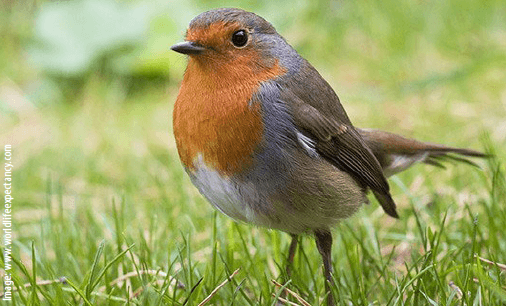 Migrating birds appear to have a
‘sixth sense’ which means they
always manage to find their nesting
grounds —a talent that has long mystified
scientists. Now researchers have
found the secret to this skill is down
to a protein in the bird’s eyes that is
sensitive to blue light. This protein lets
them ‘see’ Earth’s magnetic field as an
overlay on their normal field of view,
two studies suggest.
Scientists from Lund University in
Sweden looked at zebra finches, while
researchers from Carl von Ossietzky
University Oldenburg in Germany
studied European robins.
For a bird to know roughly where
it is in the world, and correct itself
if it goes off course, it needs what is
known as ‘true navigation’. They do
this by using the magnetic field to plot
their migratory routes.
Scientists believe the Earth’s core is
responsible for creating its magnetic
field. As molten iron in the Earth’s
outer core escapes it creates convection
currents. These currents generate
electric currents which create the
magnetic field.
Experts knew that birds could
only sense magnetic fields if certain
wavelengths of light were available,
but they did not know why this was
the case. ...
Migrating birds appear to have a
‘sixth sense’ which means they
always manage to find their nesting
grounds —a talent that has long mystified
scientists. Now researchers have
found the secret to this skill is down
to a protein in the bird’s eyes that is
sensitive to blue light. This protein lets
them ‘see’ Earth’s magnetic field as an
overlay on their normal field of view,
two studies suggest.
Scientists from Lund University in
Sweden looked at zebra finches, while
researchers from Carl von Ossietzky
University Oldenburg in Germany
studied European robins.
For a bird to know roughly where
it is in the world, and correct itself
if it goes off course, it needs what is
known as ‘true navigation’. They do
this by using the magnetic field to plot
their migratory routes.
Scientists believe the Earth’s core is
responsible for creating its magnetic
field. As molten iron in the Earth’s
outer core escapes it creates convection
currents. These currents generate
electric currents which create the
magnetic field.
Experts knew that birds could
only sense magnetic fields if certain
wavelengths of light were available,
but they did not know why this was
the case. ...
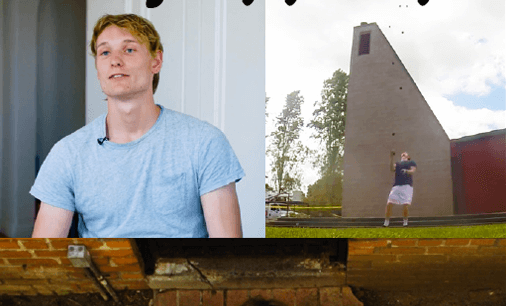
 Designed by Phillipe Starck in
1990, the Juicy Salif is rightly
counted amongst the icons of industrial
design and has been exhibited in
the Museum of Modern Art in New
York. The citrus squeezer is cast in
aluminium which is then polished, the
design based on the shape of a squid
and according to an account from
the founder of Alessi was originally
sketched out by Starck on a napkin
while eating squid with lemon
squeezed over it. It’s a perfect example
of how the most abstract associations
can inspire iconic design.
Designed by Phillipe Starck in
1990, the Juicy Salif is rightly
counted amongst the icons of industrial
design and has been exhibited in
the Museum of Modern Art in New
York. The citrus squeezer is cast in
aluminium which is then polished, the
design based on the shape of a squid
and according to an account from
the founder of Alessi was originally
sketched out by Starck on a napkin
while eating squid with lemon
squeezed over it. It’s a perfect example
of how the most abstract associations
can inspire iconic design.
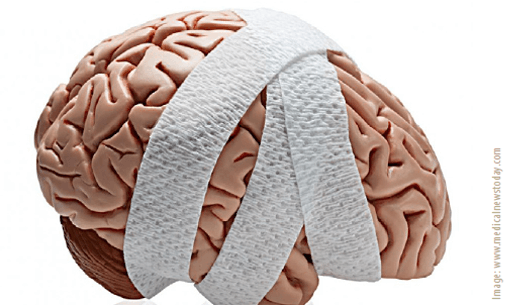 What happens to your brain when
you get a concussion? Concussions
are a type of mild traumatic brain
injury. A concussion is usually caused
by a hard blow to the head. While the
blow causes immediate pain on the
outside, what happens within is where
the real damage can occur.
Thankfully, your brain does not
absorb the brunt of the impact. Instead,
it’s the protective liquid barrier between
your brain and skull. As a result,
the liquid sloshes back and forth, carrying
your brain with it. This can bruise
the brain tissue at the sites of impact.
But something more sinister is happening
deep in the tissue. The brain’s
motion is stretching and ripping your
axons apart. If this sounds bad, you’re
right! Axons are delicate fibers that
carry electrical signals throughout
your brain. Without these signals, you
can’t control your body.
When axons break apart, they die
and release harmful toxins. These
toxins will damage healthy nerves in
your brain. You may experience this
nerve damage as one, or more, of
the following: headache, dizziness,
fatigue, blurry vision, unconsciousness.
Plus, the damage caused by
your first concussion actually raises
your risk of a second one within the
following year.
Each year, over 1 million Americans
suffer from a concussion, or similar
mild brain trauma. Most people will
recover after a few weeks.
What happens to your brain when
you get a concussion? Concussions
are a type of mild traumatic brain
injury. A concussion is usually caused
by a hard blow to the head. While the
blow causes immediate pain on the
outside, what happens within is where
the real damage can occur.
Thankfully, your brain does not
absorb the brunt of the impact. Instead,
it’s the protective liquid barrier between
your brain and skull. As a result,
the liquid sloshes back and forth, carrying
your brain with it. This can bruise
the brain tissue at the sites of impact.
But something more sinister is happening
deep in the tissue. The brain’s
motion is stretching and ripping your
axons apart. If this sounds bad, you’re
right! Axons are delicate fibers that
carry electrical signals throughout
your brain. Without these signals, you
can’t control your body.
When axons break apart, they die
and release harmful toxins. These
toxins will damage healthy nerves in
your brain. You may experience this
nerve damage as one, or more, of
the following: headache, dizziness,
fatigue, blurry vision, unconsciousness.
Plus, the damage caused by
your first concussion actually raises
your risk of a second one within the
following year.
Each year, over 1 million Americans
suffer from a concussion, or similar
mild brain trauma. Most people will
recover after a few weeks.


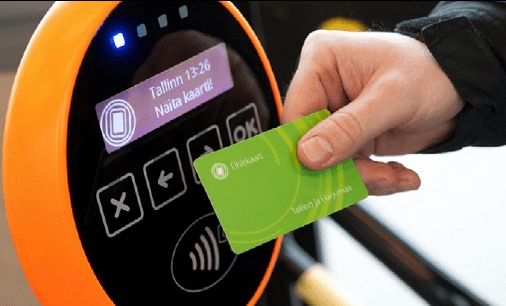 Tallinn, known for its digital government
and successful tech startups,
is often referred to as Europe’s innovation
capital. Now celebrating five years
of free public transport for all citizens,
the government is planning to make
Estonia the first free public transport
nation. To ride Tallinn’s network of
trams, buses and trains for free, you
must be registered as a resident, which
makes the municipality profit €1,000
from your income tax every year. All
you need to do then is getting a €2
green card and carrying your ID on public
transport.
Five years ago, citizens of Tallinn
were asked in a referendum if free
public transport should be realized.
Why should citizens be involved in
such political decisions?
Allan Alaküla, Head of Tallinn European
Union Office, shares some valuable
insights for other cities: “A decision
for a long-term project should not
only be taken by the current elected
council, but it should be locked politically
by asking for support from the
public. Although a local referendum is
not legally binding, the mandate from
the popular vote is stronger than just
from the council.”
Tallinn, known for its digital government
and successful tech startups,
is often referred to as Europe’s innovation
capital. Now celebrating five years
of free public transport for all citizens,
the government is planning to make
Estonia the first free public transport
nation. To ride Tallinn’s network of
trams, buses and trains for free, you
must be registered as a resident, which
makes the municipality profit €1,000
from your income tax every year. All
you need to do then is getting a €2
green card and carrying your ID on public
transport.
Five years ago, citizens of Tallinn
were asked in a referendum if free
public transport should be realized.
Why should citizens be involved in
such political decisions?
Allan Alaküla, Head of Tallinn European
Union Office, shares some valuable
insights for other cities: “A decision
for a long-term project should not
only be taken by the current elected
council, but it should be locked politically
by asking for support from the
public. Although a local referendum is
not legally binding, the mandate from
the popular vote is stronger than just
from the council.”
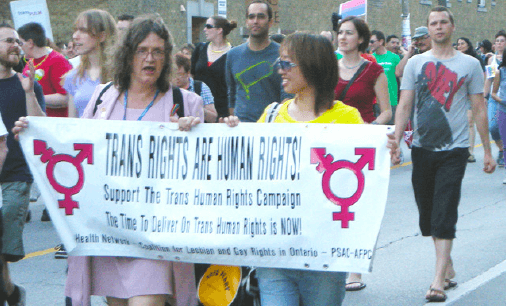 Pakistan’s parliament on May
8 (2018) passed a bill ensuring
fundamental rights for transgender
citizens. The Transgender Persons
(Protection of Rights) Act will ensure
that members of the transgender
community in Pakistan have the right
to have their chosen gender identity
officially recognized on government
documents such as passports, driver’s
licenses and national identity cards.
In addition the new law would prohibit
discrimination at work, on public
modes of transport, in schools and
while receiving medical care.
The fate of this historic bill now lies
with Pakistan’s president, Mamnoon
Hussain. We’ll wait to see whether he
will sign the bill, but in any case this
is a huge step forward for activists
such as Mehlab Jameel who have been
working hard for such a law.
“This kind of development is not
only unprecedented in Pakistani history,
but it’s one of the most progressive
laws in the whole world,” Jameel
told NPR.
How do other countries line up in
terms of their protection of transgender
people?
According to the Global Commission
on HIV and the Law, 20
countries have passed legislation
recognizing the rights of transgender
people.
Pakistan’s parliament on May
8 (2018) passed a bill ensuring
fundamental rights for transgender
citizens. The Transgender Persons
(Protection of Rights) Act will ensure
that members of the transgender
community in Pakistan have the right
to have their chosen gender identity
officially recognized on government
documents such as passports, driver’s
licenses and national identity cards.
In addition the new law would prohibit
discrimination at work, on public
modes of transport, in schools and
while receiving medical care.
The fate of this historic bill now lies
with Pakistan’s president, Mamnoon
Hussain. We’ll wait to see whether he
will sign the bill, but in any case this
is a huge step forward for activists
such as Mehlab Jameel who have been
working hard for such a law.
“This kind of development is not
only unprecedented in Pakistani history,
but it’s one of the most progressive
laws in the whole world,” Jameel
told NPR.
How do other countries line up in
terms of their protection of transgender
people?
According to the Global Commission
on HIV and the Law, 20
countries have passed legislation
recognizing the rights of transgender
people.
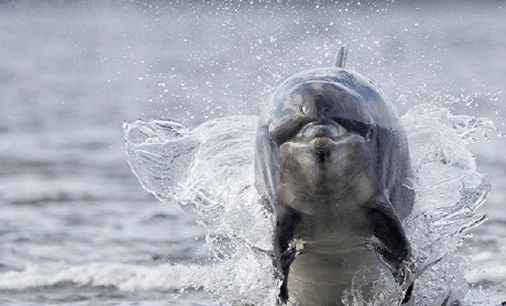 In a white-tiled lab at London Zoo, just
across the street from the giraffes, two
investigators are slowly and painstakingly
dissecting a porpoise.Rescue
workers recovered the stranded animal
on a beach in Somerset a week before. It
was maimed by brutal red gashes –from
a boat’s propeller, they thought.
Investigators Rob Deaville and Matt
Perkins are not so sure. Over the next
two hours, they will try to uncover
what killed this particular porpoise.
They will also look for clues to a much
bigger puzzle, one that involves all of
marine life, answering questions like:
what is the state of our oceans? What
are the biggest threats? And what can
we as humans do to help?
Deaville and Perkins conduct postmortems
on more than a hundred porpoises, dolphins and whales a year
for the Zoological Society of London.
Their work has uncovered surprising
threats, from long-banned chemicals
lingering in the water to the devastating
impact of fishing nets. But it has
also revealed good news about the
power of policy change and the return
of endangered species.
“We use a dead body on a beach to
shed light on its life, not just its death,”
says Deaville, who leads the UK’s
Cetacean Strandings Investigation
Programme –or CSIP for short– at the
Zoological Society.
Cetaceans are dolphins, porpoises
and whales ...
In a white-tiled lab at London Zoo, just
across the street from the giraffes, two
investigators are slowly and painstakingly
dissecting a porpoise.Rescue
workers recovered the stranded animal
on a beach in Somerset a week before. It
was maimed by brutal red gashes –from
a boat’s propeller, they thought.
Investigators Rob Deaville and Matt
Perkins are not so sure. Over the next
two hours, they will try to uncover
what killed this particular porpoise.
They will also look for clues to a much
bigger puzzle, one that involves all of
marine life, answering questions like:
what is the state of our oceans? What
are the biggest threats? And what can
we as humans do to help?
Deaville and Perkins conduct postmortems
on more than a hundred porpoises, dolphins and whales a year
for the Zoological Society of London.
Their work has uncovered surprising
threats, from long-banned chemicals
lingering in the water to the devastating
impact of fishing nets. But it has
also revealed good news about the
power of policy change and the return
of endangered species.
“We use a dead body on a beach to
shed light on its life, not just its death,”
says Deaville, who leads the UK’s
Cetacean Strandings Investigation
Programme –or CSIP for short– at the
Zoological Society.
Cetaceans are dolphins, porpoises
and whales ...
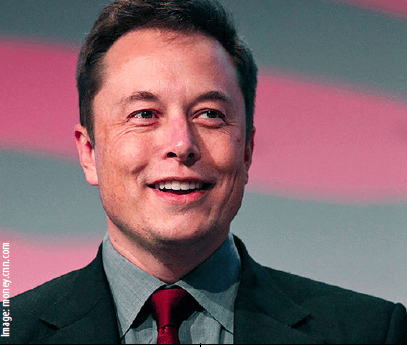
 This nifty knife takes
a hard brick of butter and turns it into
sumptuous, spreadable ribbons. By Sacha
Pantschenko, Craig Andrews and Norman
Oliveria.
store.moma.org
This nifty knife takes
a hard brick of butter and turns it into
sumptuous, spreadable ribbons. By Sacha
Pantschenko, Craig Andrews and Norman
Oliveria.
store.moma.org
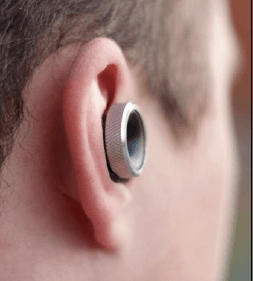 Acoustic adjustable hearing
solutions that reduce noise in four steps.
No electronics, comfortable to use and
easy to carry.
Acoustic adjustable hearing
solutions that reduce noise in four steps.
No electronics, comfortable to use and
easy to carry.
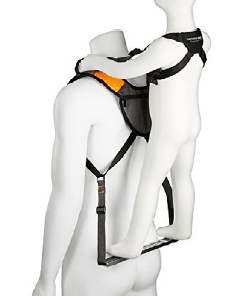 A clever standing
child carrier system makes it easy to
carry a toddler on your back. By Full Sail
International.
piggybackrider.com
A clever standing
child carrier system makes it easy to
carry a toddler on your back. By Full Sail
International.
piggybackrider.com
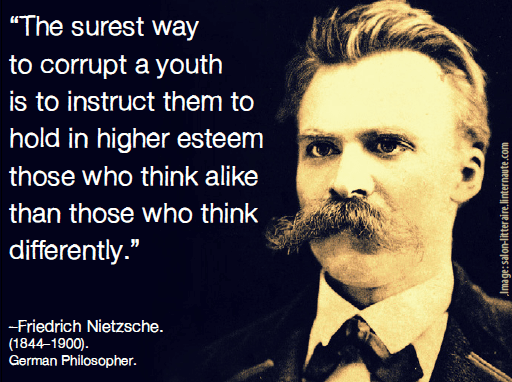
 The Bachelor of Metallurgy Engineering
(BS, BSEE) program
objective is to provide students with
a thorough grounding in the fundamentals
of Metallurgy Engineering
that would allow a graduate to function
effectively in industry or continue
on to graduate school. The Bachelor
of Metallurgy Engineering (BS, BSEE)
program is offered online via distance
learning. After evaluating both academic
record and life experience, AIU staff
working in conjunction with Faculty
and Academic Advisors will assist
students in setting up a custom-made
program, designed on an individual
basis. This flexibility to meet student
needs is seldom found in other distance
learning programs. Our online program
does not require all students to take the
same subjects/courses, use the same
books, or learning materials. Instead,
the online Bachelor of Metallurgy
Engineering (BS, BSEE) curriculum is
designed individually by the student
and academic advisor. It specifically
addresses strengths and weaknesses
with respect to market opportunities in
the student’s major and intended field
of work. Understanding that industry
and geographic factors should influence
the content of the curriculum
instead of a standardized one-fits-all
design is the hallmark of AIU’s unique
approach to adult education. This
philosophy addresses the dynamic and
constantly changing environment of
working professionals by helping adult
students in reaching their professional
and personal goals within the scope of
the degree program.
The Bachelor of Metallurgy Engineering
(BS, BSEE) program
objective is to provide students with
a thorough grounding in the fundamentals
of Metallurgy Engineering
that would allow a graduate to function
effectively in industry or continue
on to graduate school. The Bachelor
of Metallurgy Engineering (BS, BSEE)
program is offered online via distance
learning. After evaluating both academic
record and life experience, AIU staff
working in conjunction with Faculty
and Academic Advisors will assist
students in setting up a custom-made
program, designed on an individual
basis. This flexibility to meet student
needs is seldom found in other distance
learning programs. Our online program
does not require all students to take the
same subjects/courses, use the same
books, or learning materials. Instead,
the online Bachelor of Metallurgy
Engineering (BS, BSEE) curriculum is
designed individually by the student
and academic advisor. It specifically
addresses strengths and weaknesses
with respect to market opportunities in
the student’s major and intended field
of work. Understanding that industry
and geographic factors should influence
the content of the curriculum
instead of a standardized one-fits-all
design is the hallmark of AIU’s unique
approach to adult education. This
philosophy addresses the dynamic and
constantly changing environment of
working professionals by helping adult
students in reaching their professional
and personal goals within the scope of
the degree program.
 Atlantic International University is accredited by the Accreditation Service for International
Schools, Colleges and Universities (ASIC). ASIC Accreditation is an internationally
renowned quality standard for colleges and universities. Visit ASIC’s Directory of Accredited
Colleges and Universities. ASIC is a member of CHEA International Quality Group (CIQG) in
the USA, an approved accreditation body by the Ministerial Department of the Home Office in the UK,
and is listed in the International Directory of the Council for Higher Education Accreditation (CHEA).
AIU meets all state and federal laws as a degree-granting institution in the United States and the State of
Hawaii. The University was legally established by corporate charter in 1998 and is in good standing.
Atlantic International University is accredited by the Accreditation Service for International
Schools, Colleges and Universities (ASIC). ASIC Accreditation is an internationally
renowned quality standard for colleges and universities. Visit ASIC’s Directory of Accredited
Colleges and Universities. ASIC is a member of CHEA International Quality Group (CIQG) in
the USA, an approved accreditation body by the Ministerial Department of the Home Office in the UK,
and is listed in the International Directory of the Council for Higher Education Accreditation (CHEA).
AIU meets all state and federal laws as a degree-granting institution in the United States and the State of
Hawaii. The University was legally established by corporate charter in 1998 and is in good standing.
 If a student outside the U.S. wishes to carry
out a particular procedure within a country’s
Department of Education regarding their
degree earned at AIU, such procedures are to
be carried out independently by the student.
AIU respects the unique rules and regulations
of each country and does not intervene or
influence the respective authorities. We
recommend prospective students who
intend to carry out such procedures
outside the U.S. to verify in detail the
steps and requirements needed in
order to be fully informed.
If a student outside the U.S. wishes to carry
out a particular procedure within a country’s
Department of Education regarding their
degree earned at AIU, such procedures are to
be carried out independently by the student.
AIU respects the unique rules and regulations
of each country and does not intervene or
influence the respective authorities. We
recommend prospective students who
intend to carry out such procedures
outside the U.S. to verify in detail the
steps and requirements needed in
order to be fully informed.
 The School of Business and Economics
allows aspiring and practicing
professionals, managers, and entrepreneurs
in the private and public sectors
to complete a self paced distance
learning degree program of the highest
academic standard.
The ultimate goal is to empower
learners and help them take advantage
of the enormous array of resources
from the world environment in order
to eliminate the current continuum of
poverty and limitations.
Degree programs are designed for
those students whose professional experience has been in business,
marketing, administration, economics,
finance and management.
The School of Business and Economics
allows aspiring and practicing
professionals, managers, and entrepreneurs
in the private and public sectors
to complete a self paced distance
learning degree program of the highest
academic standard.
The ultimate goal is to empower
learners and help them take advantage
of the enormous array of resources
from the world environment in order
to eliminate the current continuum of
poverty and limitations.
Degree programs are designed for
those students whose professional experience has been in business,
marketing, administration, economics,
finance and management.
 The School of Social and Human Studies
is focused on to the development of
studies which instill a core commitment
to building a society based on social and
economic justice and enhancing opportunities
for human well being.
The founding principles lie on the
basic right of education as outlined
in the Declaration of Human Rights.
We instill in our students a sense of
confidence and self reliance in their
ability to access the vast opportunities
available through information channels,
the world wide web, private, public,
nonprofit, and nongovernmental organizations in an ever expanding
global community.
Degree programs are aimed towards
those whose professional life has been
related to social and human behavior,
with the arts, or with cultural studies.
The School of Social and Human Studies
is focused on to the development of
studies which instill a core commitment
to building a society based on social and
economic justice and enhancing opportunities
for human well being.
The founding principles lie on the
basic right of education as outlined
in the Declaration of Human Rights.
We instill in our students a sense of
confidence and self reliance in their
ability to access the vast opportunities
available through information channels,
the world wide web, private, public,
nonprofit, and nongovernmental organizations in an ever expanding
global community.
Degree programs are aimed towards
those whose professional life has been
related to social and human behavior,
with the arts, or with cultural studies.
 The School of Science and Engineering
seeks to provide dynamic, integrated,
and challenging degree programs
designed for those whose experience
is in industrial research, scientific production,
engineering and the general
sciences. Our system for research and
education will keep us apace with the
twenty-first century reach scientific
advance in an environmentally and
ecologically responsible manner to allow
for the sustainability of the human
population. We will foster among our
students a demand for ethical behavior,
an appreciation for diversity, an understanding
of scientific investigation,
The School of Science and Engineering
seeks to provide dynamic, integrated,
and challenging degree programs
designed for those whose experience
is in industrial research, scientific production,
engineering and the general
sciences. Our system for research and
education will keep us apace with the
twenty-first century reach scientific
advance in an environmentally and
ecologically responsible manner to allow
for the sustainability of the human
population. We will foster among our
students a demand for ethical behavior,
an appreciation for diversity, an understanding
of scientific investigation,
 With access to a global catalog created and maintained collectively by more than
9,000 participating institutions, AIU students have secured excellent research
tools for their study programs.
With access to a global catalog created and maintained collectively by more than
9,000 participating institutions, AIU students have secured excellent research
tools for their study programs.